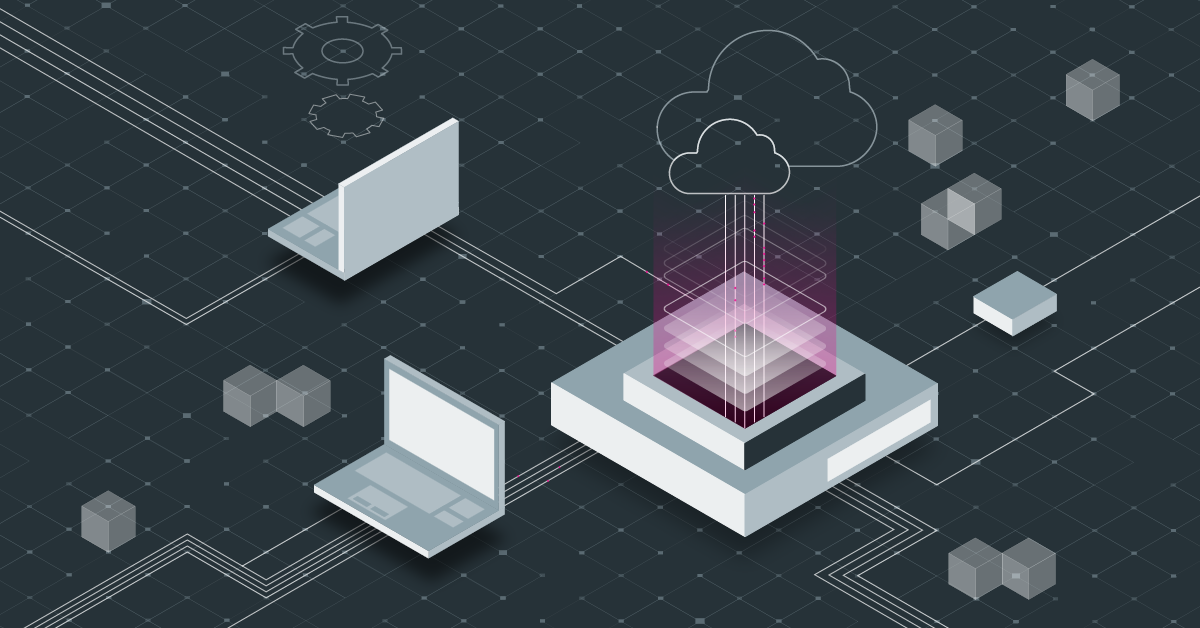With everything moving to the cloud and IT environments getting bigger and more complex, cloud automation is a must! Its benefits put organizations in a stronger position against the competition because instead of spending time and resources on manually managing cloud environments, they can focus on higher value activities, developing new services, and meeting customer’s needs. With the help of automation, deployment activities are completed faster, with lower risk of errors, and more securely.
Okay, so you have automated all your tasks. But there are so many that it’s getting hard to manage them all. To overcome this challenge, IT companies have turned to a new type of cloud technology, taking cloud automation to a new level and coordinating multiple automated tasks into synchronized end-to-end processes. We’re talking about cloud orchestration, which works hand in hand with automation and together they make sure that cloud-based applications and services are deployed and delivered in a unified, functional cloud environment that is efficient and cost-effective. Cloud orchestration greatly reduces the overall IT burden - it enables organizations to optimize the allocation of their resources, coordinates distribution of workloads among cloud-based resources, and organizes the provisioning of services across multiple servers or cloud environments.
And why are we talking about this? Because if you are reading this, we believe there’s a good chance you are looking for a way to optimize your deployment process, reduce the human factor and fasten the preparation of deployment scripts. In that case, keep reading because we have just the right tools for you! 😉

Meet the xOpera project
The xOpera project provides a set of tools for cloud application orchestration and automation, including opera, a general OASIS TOSCA orchestrator with a set of plugins and add-ons, and a Template Library, a tool for publishing TOSCA components and templates. The project follows the OASIS TOSCA standard, which offers numerous advantages over other orchestrators, including interoperability, vendor neutrality (meaning no vendor lock-in), an open standard community, and the ability to act as an umbrella for different executors. The addition of the most popular declarative tool Ansible to the TOSCA standard creates a powerful combination that enables DevOps engineers to create deployment graphs and relationships with human-readable deployment blueprints that can overpower even the most prominent orchestrators currently available.
The vision of the xOpera team is to create an ecosystem that provides the necessary tools for orchestration. At the heart of this project is the opera orchestrator (Python library), a lightweight, open source and state-aware orchestrator compliant with TOSCA Simple Profile in YAML v1.3. It enables orchestration of automated tasks within cloud applications for different cloud providers such as AWS, Azure, GCP and OpenFaaS. The tool can be used and integrated into other infrastructures in order to deploy services or applications and therefore reduce the human factor. xOpera uses Ansible automation tool to implement the TOSCA standard and to run operations via Ansible playbooks that are powerful and easy to use. Originally, the orchestrator was CLI based, later extended with API accessibility and is now also distributed as a SaaS component, which comes with a simple browser-based GUI and allows integration with other authorization tools (based on KeyCloak), handling secrets, providing multi-tenancy (sharing deployment projects with co-workers), and more. The xOpera SaaS orchestrator brings the ability to use the orchestrator without setting it up in the local environment and offers a possibility to use the orchestrator from different devices and share the deployment project with other users inside the DevOps team.
The xOpera ecosystem includes tools that target optimizing deployment processes and reducing the human factor along with a faster preparation of deployment scripts.
The xOpera ecosystem includes tools that target optimizing deployment processes and reducing the human factor along with a faster preparation of deployment scripts.
Like what you’ve heard? Want to know more? Find more info about the orchestrator on the documentation pages.
Relation to TOSCA Technical committee and academia
XLAB has been a voting member of the TOSCA Technical committee for a few years and is now focused on developing tools that comply with the TOSCA standard. XLAB works closely with the technical committee, regularly presenting work progress and jointly producing a set of typical TOSCA applications. In addition, the xOpera tools have been used in university courses and boot camps teaching cloud computing or advanced service-oriented technologies, organized by:
- Tartu University (E),
- joint program of Tilburg university and Eindhoven university of Technology (NL) and
- Imperial College in London(UK).
It all started with EU project
The history of xOpera goes back to the H2020 project DICE, where a Dicer deployment engine was developed. With additional improvements and ideas, the xOpera project was born and is currently successfully performing orchestration tasks for the H2020 projects RADON (Microservice management framework, focusing on FaaS, but not limited to) and SODALITE (HPC application management). xOpera is also being evaluated in two other H2020 projects that have recently started – FISHY (building a framework for cyber resilient supply chain systems) and PIACERE (Trustworthy IaC in DevOps integrated framework).








